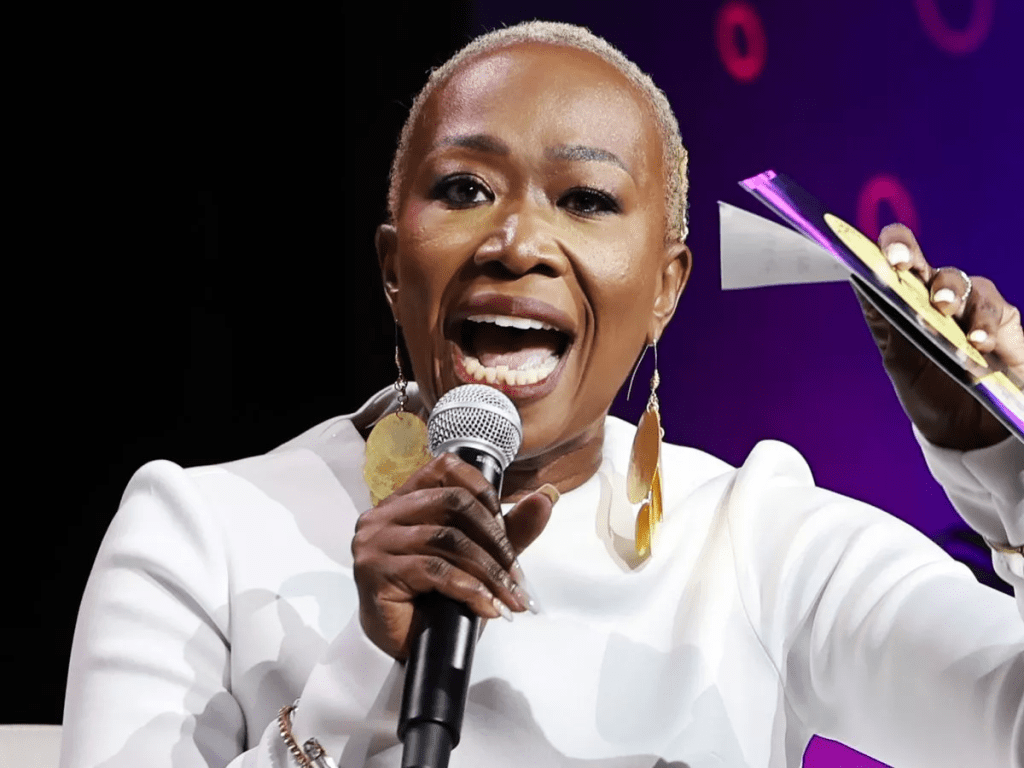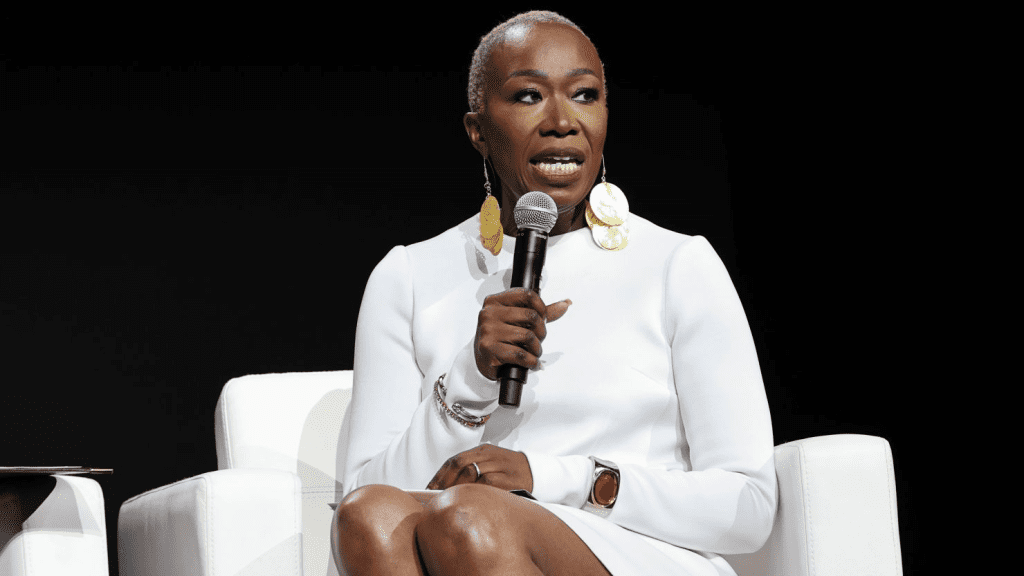MSNBC has officially canceled Joy Reid’s primetime show, marking a significant shift in the network’s programming strategy. Once considered a key voice in progressive political commentary, Reid’s departure from primetime signals a deeper transformation within the cable news industry, where traditional broadcast models struggle to keep pace with digital-first media consumption.

For years, The ReidOut provided in-depth discussions on politics, racial justice, and social issues, but declining ratings have now forced MSNBC to make a tough decision. The cancellation highlights the growing challenges faced by legacy networks, as audiences increasingly turn to streaming services, podcasts, and social media platforms for their news consumption.
Joy Reid’s Career and Her Impact on MSNBC
Joy Reid has been a prominent voice in political journalism, known for her bold and unfiltered takes on major issues. She first gained national recognition through AM Joy, a weekend morning political show that built a strong following among progressive viewers. In 2020, MSNBC promoted Reid to a primetime slot, making her the first Black woman to anchor an evening news program on the network.
Video: MSNBC FIRES Joy Reid’s Show After DISASTROUS Ratings DECLINE From Trump Election Victory!
Her show, The ReidOut, aimed to provide a progressive take on politics, often featuring sharp critiques of conservative figures and policies. While she cultivated a loyal audience, the show struggled to maintain strong viewership numbers, especially as overall cable news ratings declined.
Why Did MSNBC Cancel Joy Reid’s Show?
The cancellation of The ReidOut was not a sudden decision—it was driven by several long-term trends affecting cable news as a whole.
1. Consistently Declining Ratings
Like many other cable news programs, Reid’s show suffered from a sharp decline in viewership. Reports indicate that MSNBC’s primetime audience has been shrinking, with The ReidOut losing key demographics to competitors like CNN and Fox News.
Joy Reid has been FIRED. Turns out calling your political opponents racist Nazis every night for an hour doesn’t get viewers pic.twitter.com/yFjPiAmRuY
— Libs of TikTok (@libsoftiktok) February 23, 2025
In an era where streaming platforms and independent media personalities attract millions of daily viewers, traditional cable shows struggle to maintain relevance. Analysts have noted that while Reid’s show had a core audience, it failed to generate broad appeal, especially among younger viewers who prefer digital content.
2. MSNBC’s Changing Strategy
MSNBC has been restructuring its lineup to stay competitive in an evolving media landscape. In recent years, the network has experimented with more interactive formats, new hosts, and revamped digital content.
Video: Joy Reid Fired From MSNBC By New Female Boss After Going Against Trump, Low Ratings Tanking Network
By canceling The ReidOut, MSNBC is likely making room for fresh talent or a different style of programming that aligns more with today’s audience demands. Some speculate that the network may be looking to diversify its offerings, possibly incorporating more streaming-focused content or bringing in new voices with broader appeal.
3. The Shift Toward Digital and On-Demand News
One of the biggest challenges for traditional cable news is the rise of digital media. Viewers no longer rely on TV schedules to get their news—they prefer on-demand, bite-sized content delivered through YouTube, podcasts, Twitter, and TikTok.
While MSNBC has tried to adapt by expanding its digital footprint, cable viewership continues to decline. The network’s decision to cancel underperforming shows is a reflection of the ongoing shift from traditional TV to online platforms.
What’s Next for Joy Reid?

Despite this setback, Joy Reid remains a well-known media personality with a dedicated following. Many believe she could make a successful transition to digital media, similar to other journalists who have launched independent podcasts, YouTube channels, or streaming partnerships.
Some possible paths for Reid include:
- Launching her own digital platform – Many journalists have successfully shifted to independent media models, where they engage audiences through subscription-based content, podcasts, and online discussions.
- Moving to another network – Although MSNBC canceled her show, Reid could find a new home at another network looking to expand its progressive commentary.
- Expanding her role in activism and writing – Reid has authored books and could further focus on writing, political analysis, and advocacy work outside of daily news broadcasting.
While MSNBC’s decision may mark the end of an era, it is unlikely to be the last we hear from Joy Reid.
How MSNBC’s Decision Reflects Broader Trends in Cable News
The cancellation of The ReidOut is not an isolated event—it reflects larger struggles within the cable news industry.
1. Traditional TV is Losing Relevance
Over the last decade, millions of viewers have cut the cord, abandoning cable TV in favor of streaming platforms like YouTube, Netflix, and independent media channels. The dominance of 24-hour news networks is waning, as people prefer more interactive and customizable news experiences.
2. Digital News Personalities Are on the Rise
Figures like Joe Rogan, Ben Shapiro, and independent political analysts have built massive online audiences without relying on traditional networks. Unlike cable news hosts who operate under corporate constraints, digital creators can engage directly with their audience through live streams, social media, and podcasts.
3. Political Commentary is Evolving

The old format of hour-long, heavily scripted cable news is losing traction. Today’s audiences prefer shorter, more engaging clips, debate-style discussions, and content that allows for real-time audience interaction. Networks that fail to adapt risk becoming obsolete.
The Future of MSNBC: What Comes Next?
MSNBC now faces a critical moment in its evolution. With Joy Reid’s departure from primetime, the network must decide how to fill the void while keeping its audience engaged.
Possible future moves include:
- Bringing in new hosts with broader appeal – MSNBC may experiment with younger, more diverse voices who can attract digital-first viewers.
- Expanding streaming and online programming – To stay competitive, MSNBC must strengthen its digital content strategy, possibly integrating live Q&A sessions, interactive features, or exclusive online content.
- Shifting focus toward investigative and long-form content – Many news consumers prefer in-depth reporting over repetitive opinion-based segments, which could shape MSNBC’s future programming.

Conclusion: A Turning Point for MSNBC and Cable News
The cancellation of Joy Reid’s primetime show underscores the changing dynamics of television journalism. With cable ratings dropping and digital news consumption skyrocketing, networks like MSNBC must reinvent their strategies to remain relevant.
For Joy Reid, this marks a transition rather than an end—she has built a brand strong enough to thrive in independent media or a new network role. Meanwhile, MSNBC must determine how to adapt to a future where traditional TV is no longer the dominant news source.
As the media landscape continues to evolve, one thing is clear: networks that fail to embrace digital innovation will struggle to survive in an era where audiences demand more flexibility, engagement, and authenticity in their news consumption.


